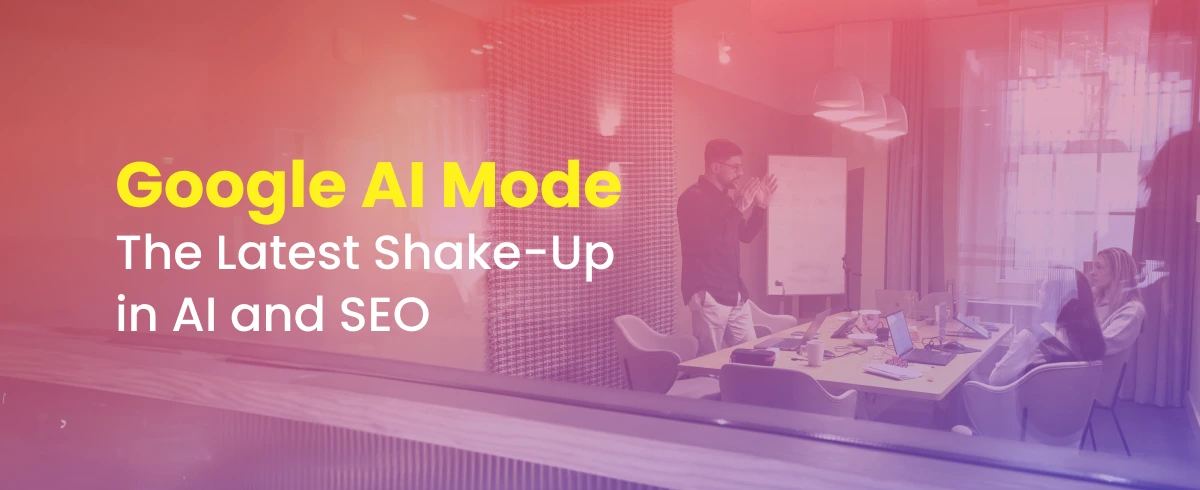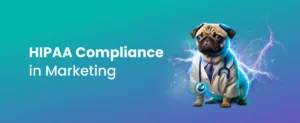Google is testing Google AI Mode, a new search experience powered by Gemini 2.0, designed to answer user queries directly within search results rather than just serving up a list of blue links. This shift is redefining AI and SEO, changing how marketers optimize content for search visibility.
What does this mean? Primarily, the way people interact with search is in the midst of a rapid evolution. If your marketing strategy relies on Google—whether through organic rankings or paid search this is a shift that is worth paying attention to.
What AI Mode Means for Marketers
For years, we’ve focussed on content optimization for page one rankings. We’ve refined ad strategies to win top placements. But when Google AI Mode shifts search from a ‘list of links’ model to an AI-driven answer engine, visibility rules change. The relationship between AI and SEO is evolving, requiring marketers to rethink their strategies
Some companies will lose traffic, while others will own the conversation. The difference may lie in who adapts to the coming change first.
SEO: The Fight for Fewer Clicks
Let’s get real—SEO has already been moving toward zero-click searches rapidly, where Google provides answers without users having to click through. Google AI Mode accelerates this shift, pushing SEO professionals to reconsider their approach. The intersection of AI and SEO now requires a deeper focus on structured, authoritative content to maintain visibility.
If your brand relies on informational search traffic (think blog posts answering common questions), expect a decline. But if you optimize for AI Mode, you can still gain traction with your target audience.
Shift from Keywords to Context
- With Google AI Mode, search queries are moving toward conversational AI responses. This means the role of AI and SEO is becoming more intertwined, as content must align with how users naturally ask questions. This means your content needs to mirror how people ask and engage with complex topics. Instead of focusing on “best CRM software,” optimize for a question-style format like “What’s the best CRM for a fast-growing B2B sales team?”
Become the Recognized Authority
- With the dominance of zero-click searches, Google AI Mode prioritizes content from trusted, expert sources. Brands with deep, authoritative content will dominate over generic keyword-stuffed pages. If you’re still churning out 500-word generic blog posts, you’re going to fall behind.
Schema Markup Is More Important Than Ever
- Structured data helps Google’s AI pull specific, accurate snippets from your content. Without it, your information may not make it into AI-generated responses.
Paid Media: Your Ads Might Not Be Where You Expect
AI Mode isn’t just disrupting organic search—it’s changing how and where ads appear. Google has suggested that ads may be integrated into AI-driven responses rather than just sitting at the top of search results.
This means:
Your CTR May Drop
- As zero-click searches become more prevalent, AI-generated responses may reduce the need for users to click ads. Marketers must adapt by crafting compelling ad copy that stands out in Google AI Mode.
AI-Generated Contextual Ads Could Change the Game
- Imagine a world where your ad isn’t just a static placement but instead dynamically adapts to an AI-generated answer. Google is already experimenting with AI-curated ad experiences that match searcher intent more precisely.
Performance Metrics Will Shift
- If AI reshapes user journeys, traditional conversion tracking could become less reliable. Marketers will need to rethink attribution models to understand where customers engage before converting.
What Should Marketers Do About AI Search?
- Optimize Your Content for Google AI Mode
Is your content optimized for Google AI Mode? As AI and SEO evolve, structured, detailed, and expert-level content will be key to staying visible in AI-driven search results. - Rethink Your Paid Search Approach
Stay ahead by testing new ad formats, experimenting with creative hooks, and monitoring AI-driven ad placements. - Own First-Party Data
If AI Mode reduces traffic, building your email list and direct audience relationships will be more important than ever.
Keep moving with the AI Changes
Google’s AI Mode isn’t just a tweak to search. It may be the beginning of a fundamental shift in the way users and SERPs respond to queries. And as in any shift, some brands will adapt and dominate. Others will struggle to keep up with the trends and lose ground.
If search is a core part of your growth strategy, now is the time to rethink how your brand shows up in the age of AI-driven search.
Because one thing is certain: AI isn’t going to wait for you to catch up.
Branded queries may surface AI-generated summaries or information about your company without directing users to your website. This makes it essential to maintain accurate, updated content across your owned channels, knowledge panels, and structured data.
Yes—but they’ll need to focus on building niche authority, leveraging schema markup, and creating in-depth, helpful content that addresses specific user intents. Personalization and local expertise can still help small brands stand out in AI responses.
AI Mode builds on technologies like featured snippets, but instead of one excerpt, it may combine data from multiple sources. While snippets may not be as prominent, the underlying principles—clear, structured, authoritative answers—still matter for visibility.
Since AI Mode relies on natural language and context-rich answers, it aligns closely with how users interact with voice assistants. Optimizing content to answer full questions and provide conversational value is more important than ever for voice visibility.



















